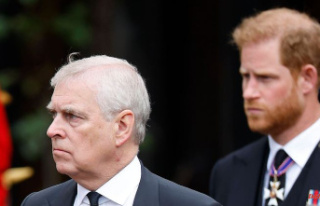She still has to prove whether Italy's new prime minister is familiar with economic policy. After first lamenting the interest rate hikes by the ECB, it is now raising the cash limits. The opposition accuses Meloni of unfair motives. She still wins the vote of confidence.
The new Italian Prime Minister Giorgia Meloni wants to raise the maximum limit for cash payments. In doing so, she will keep one of her election promises, said the head of the right-wing government in Rome in the evening. Meloni's coalition partner Lega, led by Matteo Salvini, had previously presented a bill raising the limit from the current €2,000 to €10,000.
Originally, the maximum limit was to be reduced to 1000 euros in 2023. Limiting cash payments is intended to make tax evasion more difficult. According to the Italian Ministry of Finance, around 18.5 percent of all taxes were withheld from the state in 2019. As a result, more than 100 billion euros are missing from the budget every year. Franco Mirabelli of the opposition Democratic Party described the government's plans as a gift for the mafia. "It encourages tax evasion and money laundering," he wrote on Facebook.
Meloni denied any connection. With regard to Germany, she added: "There are countries without maximum limits and with very little tax evasion." According to a study by the Bank of Italy, however, the increase in the maximum limit from 1,000 to 3,000 euros in 2016 gave the informal economy a boost. The measure was actually intended to boost consumption. Similar to Germany, cash transactions have always been popular in Italy. Card and mobile phone payments only gained acceptance during the virus pandemic. The compulsion to do this is unpopular in many circles. Opponents see this as a restriction of their freedom and cite data protection concerns.
In her first speech before Parliament, Meloni criticized the European Central Bank (ECB). The July rate hike -- the central bank's first in 11 years -- was "a decision many saw as dangerous and risking damaging bank loans to families and businesses," she said in Rome on Tuesday. The hikes in interest rates and the suspension of bond purchases "have created additional difficulties for those member states that, like us, have high levels of public debt," she said.
After Greece, Italy is the most indebted euro country. At the end of 2021, liabilities accounted for around 150 percent of economic output. In the fight against escalating inflation in the euro area, the ECB initiated the turnaround in interest rates in July.
In the evening, the second chamber of parliament also voted in favor of the new government under Meloni. In a vote in the Senate, the Prime Minister and her cabinet received the necessary absolute majority, after the House of Representatives had voted in favor of the new legal alliance in the executive the day before. In the smaller Senate, 115 of the 200 MPs present voted for Meloni. Success was practically certain for the 45-year-old, as her coalition holds an absolute majority in both chambers.












